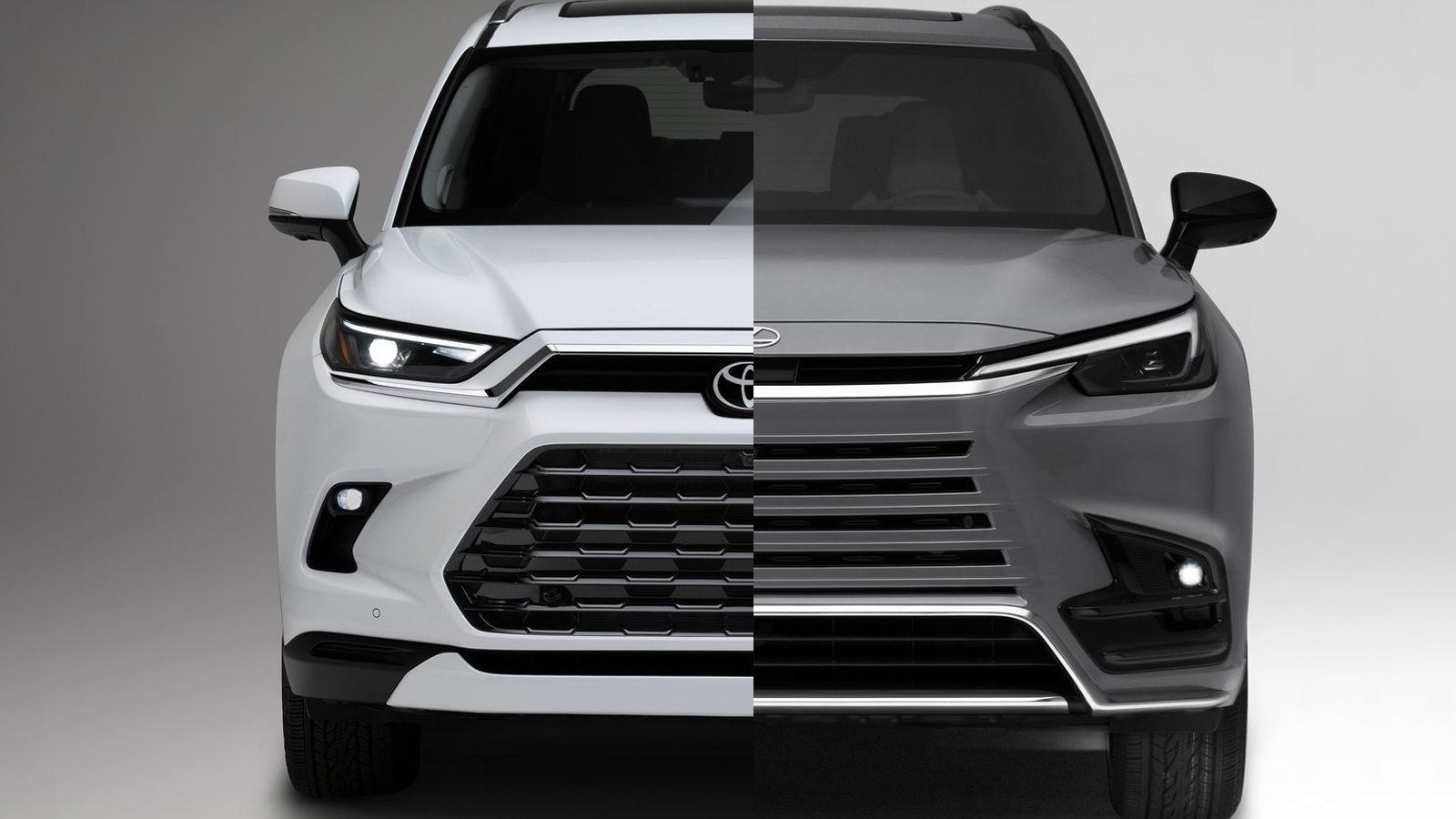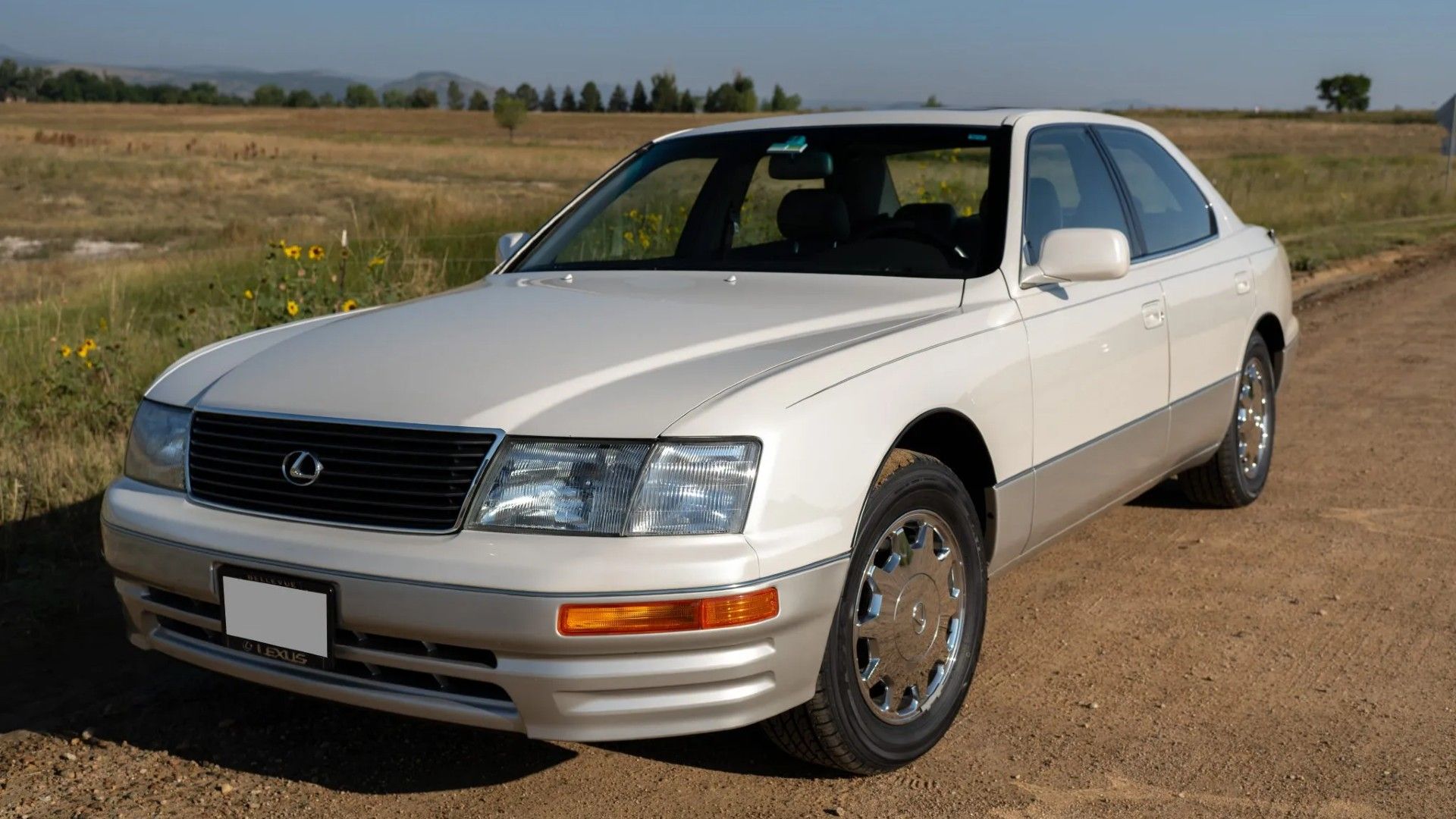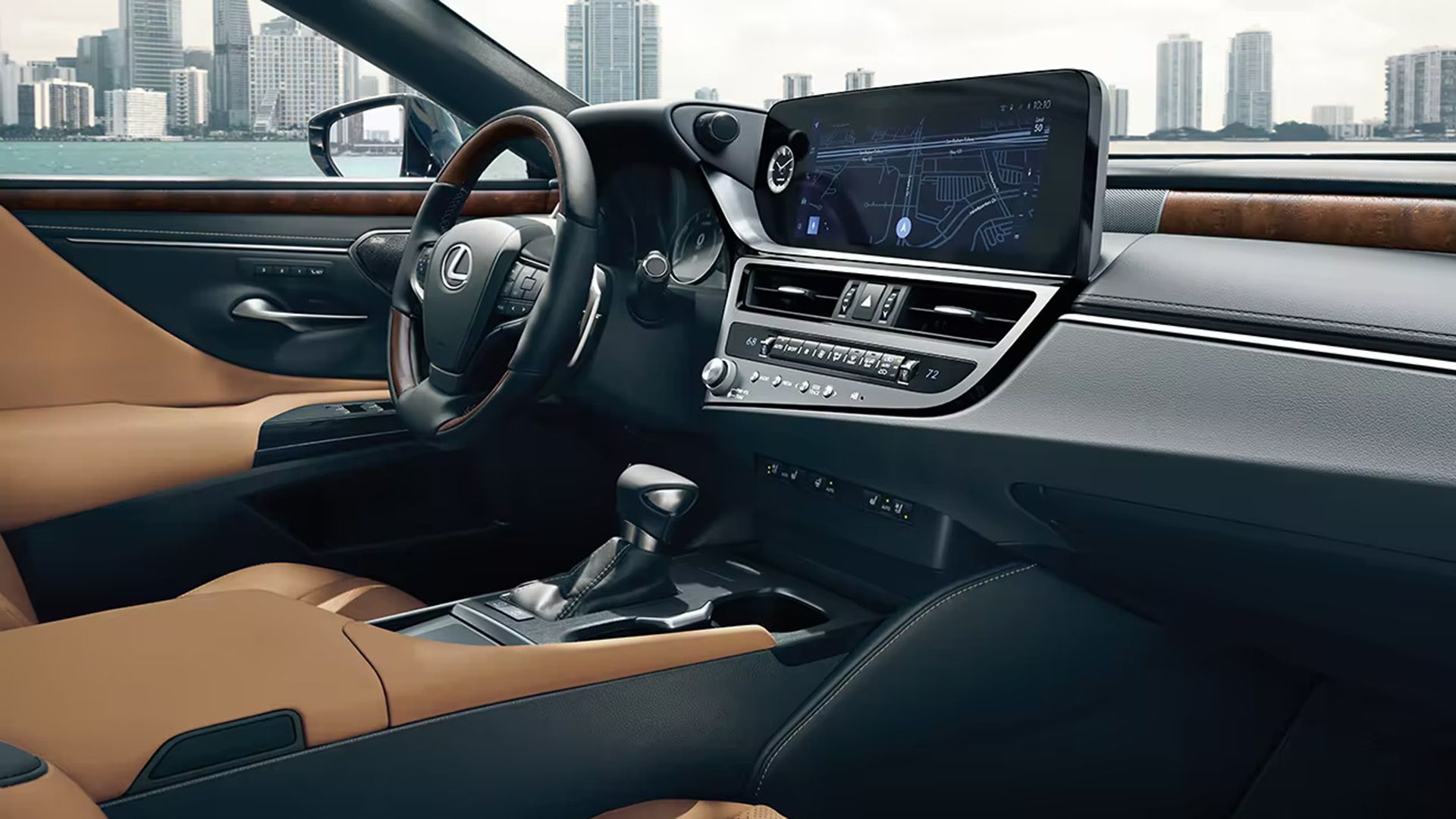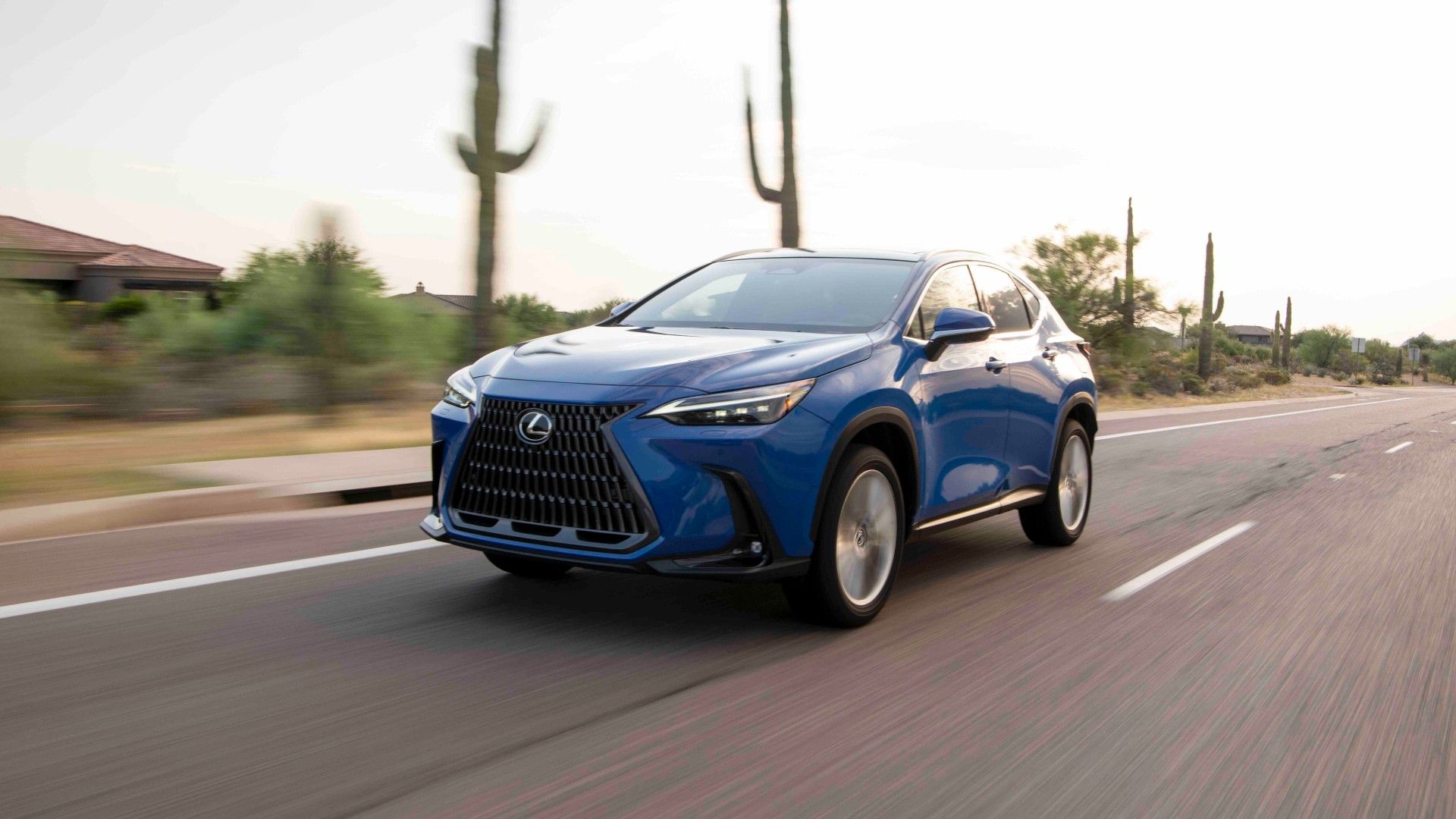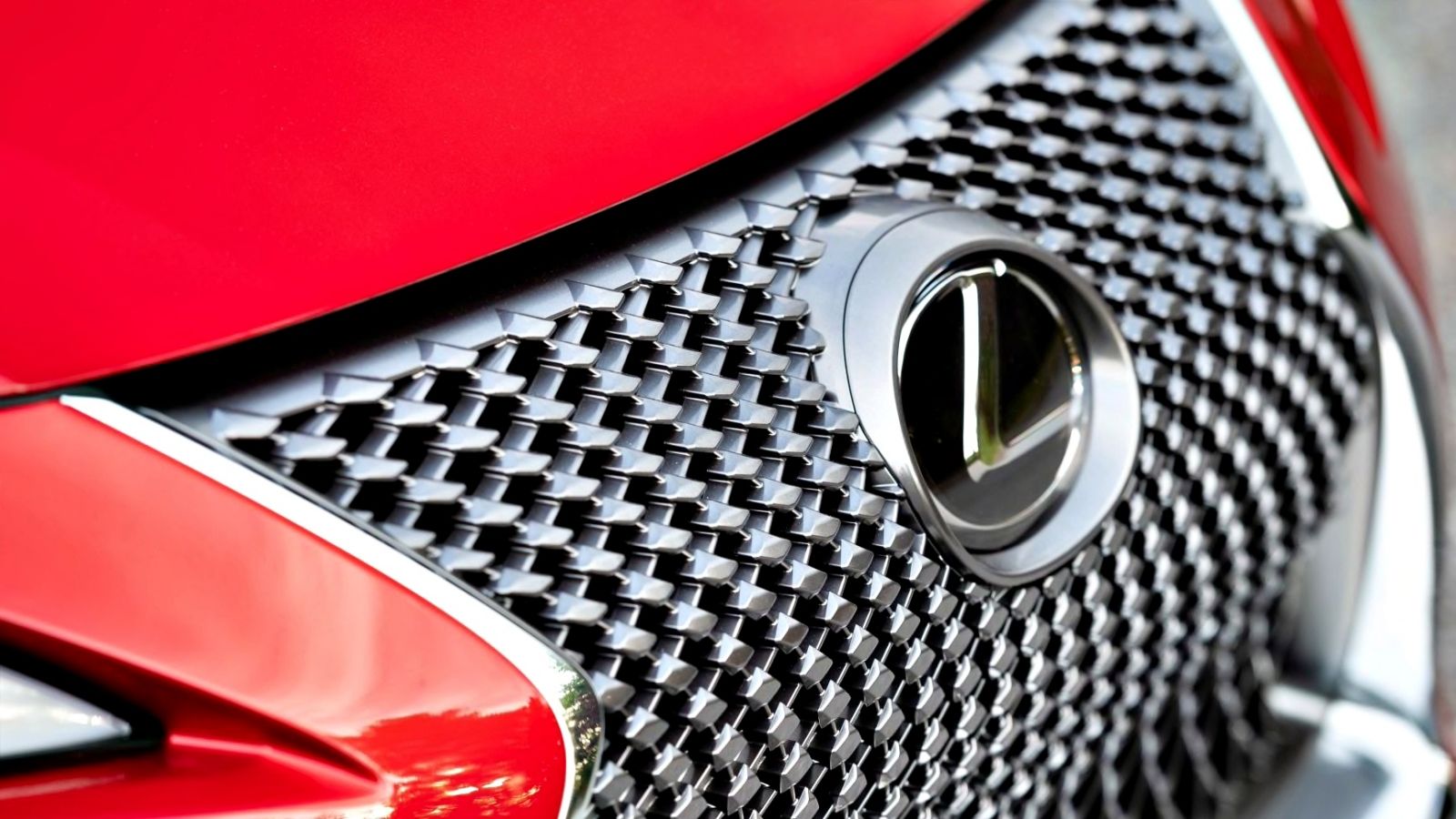Summary
- Toyota and Lexus offer similar technologies, platforms, and powertrains, but Lexus is the luxury division trusted to compete with Mercedes-Benz, BMW, and Audi.
- Lexus models have higher performance capabilities and offer more performance-oriented vehicles compared to Toyota's lineup of mainstream models.
- Lexus models have upmarket interiors with better quality materials and luxury features, while also providing better fuel economy figures than equivalent Toyota models. The premium price tag of Lexus models is justified by these factors.
Car brands that are under the same umbrella have existed for more than a century and garnered a reputation among the audiences that they target. Typically, out of the two or more respective brands under the same company, one is geared towards offering products for everyday masses whereas the other offers more luxurious counterparts with plenty of premium features and in some cases higher performance. It’s the same case with Toyota and Lexus whose products are sold in over 90 countries and are both part of the Toyota Motor Corporation.
As is already known the world over, both Toyota and Lexus fundamentally utilize similar technologies, platforms, and powertrains in their cars with some substantial differences separating them. More specifically, the biggest differentiator is that Lexus is the luxury division of Toyota entrusted with the task of competing with automakers like Mercedes-Benz, BMW, and Audi.
Lexus typically embellishes its models with luxury elements while retaining the legendary build quality that Toyota is known for, so let’s take a close look at what makes the former special and whether their products are worth the premium over the latter.
How Was Lexus Born And The Journey So Far
To fully understand Lexus as a brand we need to rewind things back by more than thirty years, 1989 to be exact when Toyota was working on an inside project dubbed the “F1” project whose aim was to penetrate the American luxury market.
This is because, during that time period, Americans were looking beyond their homegrown models and moving on to exploring European vehicles from established brands like Mercedes-Benz, BMW, and Audi. Toyota decided that it was time to put in the effort of establishing itself in the luxury segment as a means of competing not just with Acura and Infinity (luxury arms of Honda and Nissan) but also with the aforementioned brands in America.
Eventually, Project F1 led to the creation of the now legendary Lexus LS400, a luxury sedan that was executed with two very important Japanese concepts in mind, ‘Omotenashi’ and ‘Takumi’ craftsmanship. The former is the sense of hospitality or the fact that the car serves a purpose to satisfy the needs of its passengers while focusing on ride comfort and quality whereas the latter is the way in which the design is crafted and attention to detail is focussed upon.
A year later the LS400 grabbed sales from its German rivals and began turning Lexus into the incredibly popular brand it is today. In its five-year production run from 1989-1994, Lexus sold more than 165,000 units in total which included the first-gen LS400 and its refreshed version that was introduced September 1992.
2009 was the biggest turning point for the brand as it previewed its first-ever supercar to the world, the LFA which was in development for almost a decade. Once it did hit showrooms in 2012, the supercar took the world by storm as it solidified Lexus’ reputation as not simply a luxury brand, but also a high-performance automaker. Currently, Lexus produces a plethora of sedans, sportscars, and SUVs with exceptional hybrid technology and as we’ll explore further have distinguished their product line-up to differentiate itself from sister brand Toyota.
More Performance-Oriented Vehicles In The Line-up
Toyota has always been renowned for creating some of the most reliable and efficient cars, but it has also made some iconic sportscars of its own. The Supra nameplate was by far Toyota’s crowning achievement in the 90s and since then the brand has also focussed on creating high-performance cars in varying segments which include the likes of the GR 86, GR Supra, and the GR Corolla.
However, Lexus outshines Toyota in terms of producing performance cars with examples such as the RC F, LC 500, and IS 500, all of which are formidable sports cars in their respective classes. Additionally, select standard models in the Lexus line-up also get the F Sport performance package along with being equipped with invigorating powertrains which gives them an upper hand in terms of performance.
Overall, Lexus has the upper hand over Toyota when it comes to cars with higher performance whereas Toyota has more variety in terms of lifestyle vehicles like pickup trucks and SUVs.
Lexus Models Have Thoroughly Upmarket Interiors
We briefly touched upon the point that Lexus employs the ‘Takumi’ style of craftsmanship for all its models and this is where that point comes in. Even though Toyota and Lexus have nearly the same basic outline in terms of the structure, engines, transmission, and suspension across models, the biggest differentiator can be seen in the exterior design, interior quality, and luxury features.
There are also things that you can't see, like the use of more insulation and sound-deadening materials on Lexus models. Upon comparing the interiors of Lexus and Toyota models, it’s easy to see that everything from the materials comprising the trim parts to the supple leather adorning its exquisitely opulent seats is significantly better in the former’s cars.
A perfect example of this would be comparing the Toyota Crown with the equivalent Lexus ES Hybrid whereby the former is equipped with standout features like leather-trimmed seats, heated and ventilated seats, memory function for the driver’s seat, dual-zone automatic climate control and a heated steering wheel. The ES on the other hand trumps the Crown since it’s not only equipped with the same features but also sports a myriad of exclusive interior luxury features. These include
- Quilted and perforated semi-aniline leather-trimmed interior
- 10-way power-adjustable front seats
- Dual-zone automatic climate control with interior air filters, smog sensor, and automatic recirculation mode
- Wood trim with ambient lighting
- Perforated leather-trimmed shift knob
Comparing Fuel-Economy Figures
It’s easy to assume that all of Toyota’s vehicles which have garnered the reputation of being efficient, smooth, and reliable offer supreme fuel economy figures. However, this may come as a surprise that despite being powered by burlier powertrains and bearing more luxury inside their cabins, Lexus cars are able to match and even surpass the fuel efficiency figures of Toyota automobiles in their respective segments.
Toyota Model | EPA-rated Fuel Economy | Lexus Model | EPA-rated Fuel Economy |
Corolla XSE | 31 city/ 40 hwy/ 34 combined mpg | IS 300 | 21 city/ 31 hwy/ 25 combined mpg |
Camry LE | 28 city/ 39 hwy/ 32 combined mpg | ES 250 | 25 city/ 34 hwy/ 28 combined mpg |
RAV4 LE | 27 city/ 34 hwy/ 30 combined mpg | NX 250 | 26 city/ 33 hwy/ 28 combined mpg |
Highlander | 21 city/ 28 hwy/ 24 combined mpg | RX 350 | 22 city/ 29 hwy/ 25 combined mpg |
Sequoia | 20 mpg combined | GX | 17 mpg combined |
Upon viewing the table above, it becomes clear that despite being powered by heavier and stronger engines and in some cases having a higher curb weight similarly sized Lexus models are on par or offer better fuel economy figures than equivalent Toyota models.
Is The Lexus Brand's Premium Over Toyota Models Warranted?
Now it’s no surprise that Lexus commands a premium over Toyota since the latter is a mass-market automaker whereas the former Lexus is their high-end luxury auto division. Both companies have cemented themselves in the industry over the years but they each have a versatile lineup of cars that suit different buyers and purposes.
As an example, both brands make sports cars, SUVs, and sedans but Toyota does not make supercars and Lexus doesn’t produce pickup trucks, proving that they are well-aware of the type of clientele they serve. Typically, Lexus models command a premium of around $10,000-20,000 over their Toyota counterparts within the same segment due to their inherent luxury positioning.
Each brand has its own strengths, and it's important to remember that Toyota created Lexus not simply to make more luxurious versions of their models, but to achieve automotive perfection of all sorts. In a lot of ways, Lexus has achieved that goal since they have transcended into a brand that proffers suave and sophisticated cars with remarkable reliability compared to their German rivals.
Additionally, Lexus has been responsible for reinventing the way dealerships function today and this is mainly because of Jim Sherburne of Toyota's Calty Design Research who designed their first dealership. A precedent for customer service was created due to the fact that owners were greeted by their name upon their arrival, customers were given loaner Lexus', not compact cars, and their vehicles would be washed before they were returned, things which are continued to this day.
So even though Toyota models will remain a more value-oriented proposition, Lexus models with their more exhilarating and economical powertrains along with sumptuous interiors do justify the higher price tags. So even though Toyota models will remain a more value-oriented proposition, Lexus models with their more exhilarating and economical powertrains along with sumptuous interiors do justify the higher price tags.

